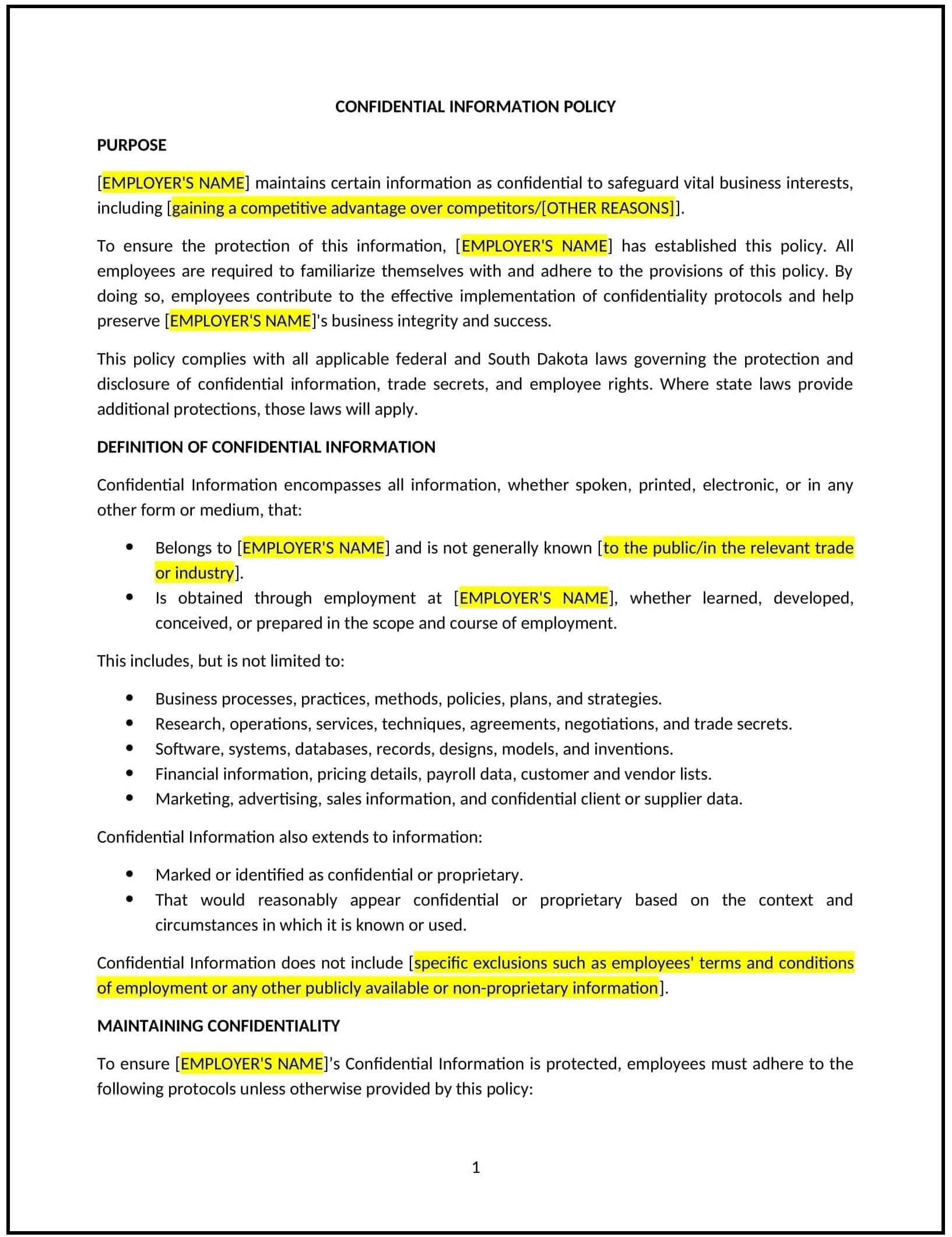Confidential information policy (South Dakota): Free template
Got contracts to review? While you're here for policies, let Cobrief make contract review effortless—start your free review now.

Customize this template for free
Confidential information policy (South Dakota)
This confidential information policy is designed to help South Dakota businesses protect sensitive data, such as customer information, trade secrets, and employee records. It outlines procedures for handling, storing, and sharing confidential information.
By adopting this policy, businesses can reduce risks, maintain trust, and align with general best practices for data protection.
How to use this confidential information policy (South Dakota)
- Define confidential information: Explain what constitutes confidential information, such as customer data, financial records, or intellectual property.
- Establish handling procedures: Provide steps for employees to handle confidential information responsibly, including secure storage and sharing.
- Set access controls: Specify who has access to confidential information and under what circumstances.
- Address breaches: Outline procedures for reporting and addressing data breaches or unauthorized disclosures.
- Train employees: Educate employees on following the policy and protecting confidential information.
- Review and update: Assess the policy annually to ensure it aligns with evolving business needs and data protection standards.
Benefits of using this confidential information policy (South Dakota)
This policy offers several advantages for South Dakota businesses:
- Protects sensitive data: Reduces the risk of data breaches or unauthorized disclosures.
- Maintains trust: Demonstrates a commitment to protecting customer and employee information.
- Reduces risks: Helps prevent legal, financial, and reputational risks associated with data breaches.
- Enhances accountability: Encourages employees to take responsibility for protecting confidential information.
- Supports reputation: Positions the business as a trustworthy and responsible employer in the community.
Tips for using this confidential information policy (South Dakota)
- Communicate the policy: Share the policy with employees and include it in the employee handbook.
- Provide training: Educate employees on following the policy and protecting confidential information.
- Monitor compliance: Regularly review data handling practices to ensure adherence to the policy.
- Address issues promptly: Take corrective action if confidential information is mishandled or disclosed improperly.
- Update regularly: Assess the policy annually to ensure it aligns with evolving business needs and data protection standards.